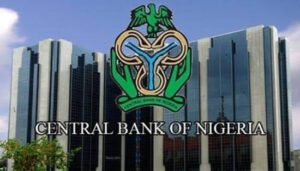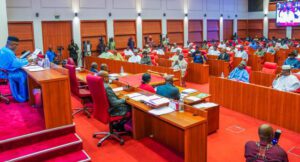


Expert criticises sharp rise in Nigeria’s Monetary Policy Rate
In a recent development that has stirred economic debate, the Central Bank of Nigeria’s decision to hike the Monetary Policy Rate (MPR) by a substantial 400 basis points has been labeled as “overkill” by Prof. Uche Uwaleke, a distinguished professor of Capital Market at Nasarawa State University.
During an interview with journalists on Wednesday, Prof. Uwaleke expressed his concerns over the aggressive adjustment which saw the MPR soar from 18.75 percent to an unprecedented 22.75 percent following the Monetary Policy Committee (MPC) meeting on Tuesday.
The MPC’s bold move also included a shift in the asymmetric corridor to +100 – 700 basis points surrounding the MPR, a significant leap from the previous +100 -300 basis points. Furthermore, the Cash Reserve Ratio (CRR) experienced a hike from 32.5 percent to 45 percent, although the Liquidity Ratio was maintained at 30 percent.
Prof. Uwaleke, an expert in the field, cautioned that such a drastic increase in the MPR could have far-reaching implications, suggesting that the action taken by the MPC might be excessively stringent.
This sentiment reflects the broader anxiety among market watchers and economists who are keenly observing the potential impacts of this policy shift on the Nigerian economy.
“Why not by more than 200 basis points since they have another opportunity to meet next month and review impact?
“They didn’t stop at MPR, they also jerked up the Cash Reserve Ratio (CRR) to 45 per cent, which at the previous level of 32.5 per cent is among the highest in Sub Saharan Africa.
“The CBN Governor has assured that policies of the bank will be evidence-based. Which empirical results support this aggressive move,’’ Uwaleke queried.
He said that the MPC decisions would affect the real sector of the economy.
According to him, the implication is the decisions that for every deposit in the bank, CRR takes 45 per cent, while Liquidity ratio takes 30 per cent.
“So, it is only 25 percent of the deposit that banks can lend
“This has negative implications for access to credit, cost of capital for firms, cost of debt service by the government and asset quality of banks.
“Expect banks to quickly reprise their loans with negative consequences for non-performing loans and financial soundness indicators.
“By this overkill on the economy in a bid to crash elevated inflation, which by the way has numerous non-monetary factors driving it, output is bound to shrink.
“So, expect lower Gross Domestic Product (GDP) numbers, especially from Agric and Industry sectors as well as a surge in unemployment levels.
“This is not a welcome development,” he said.



